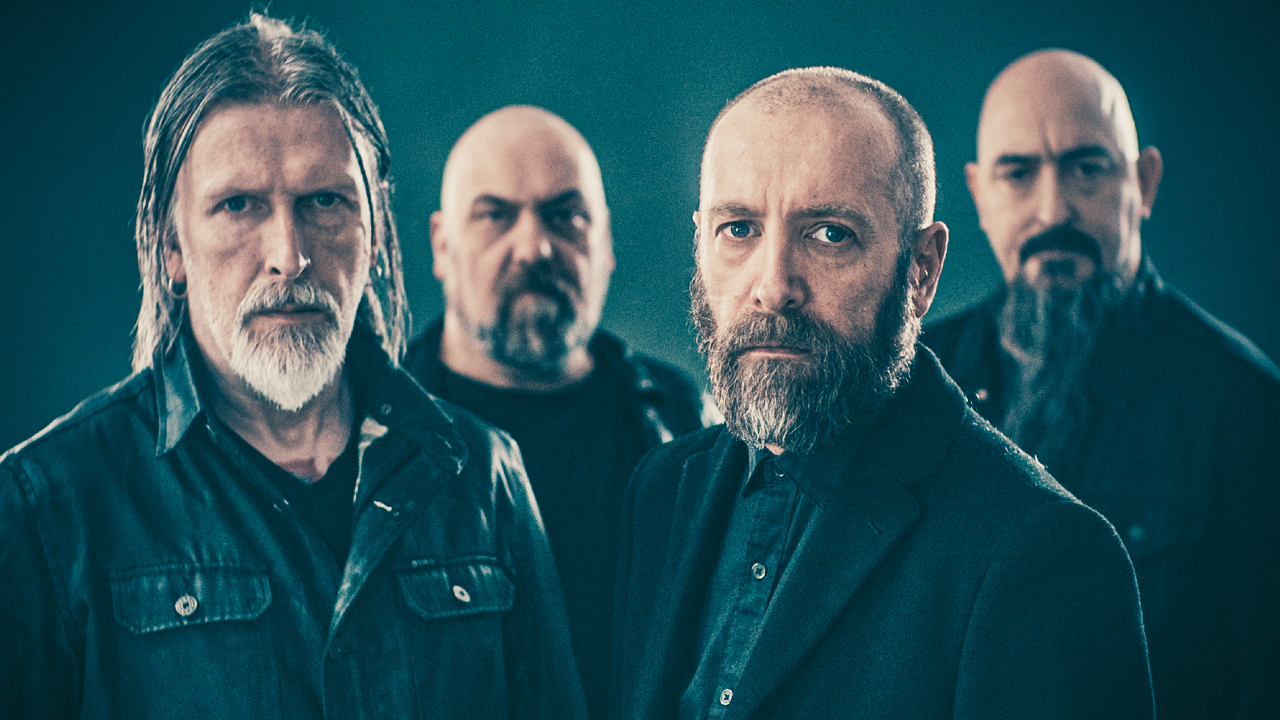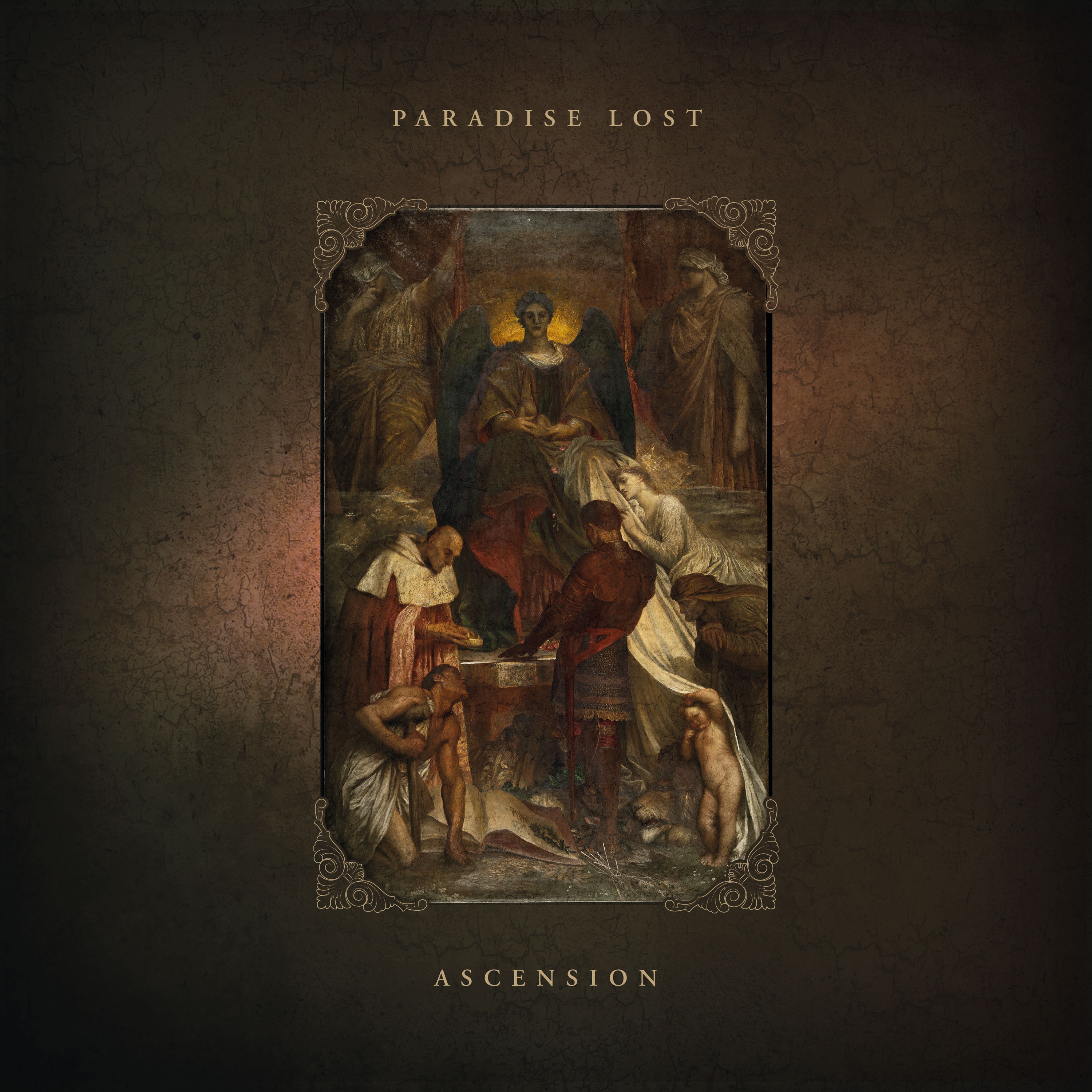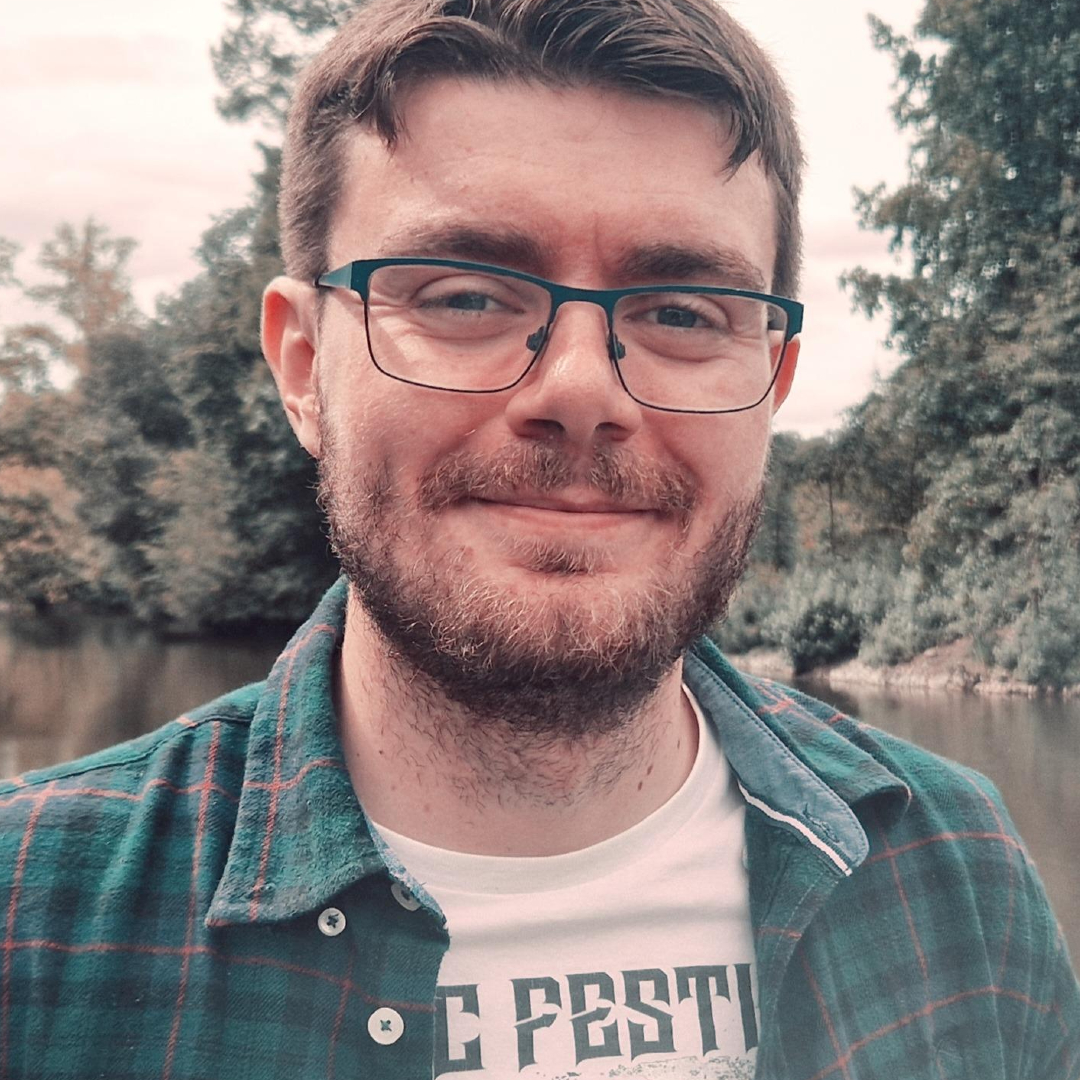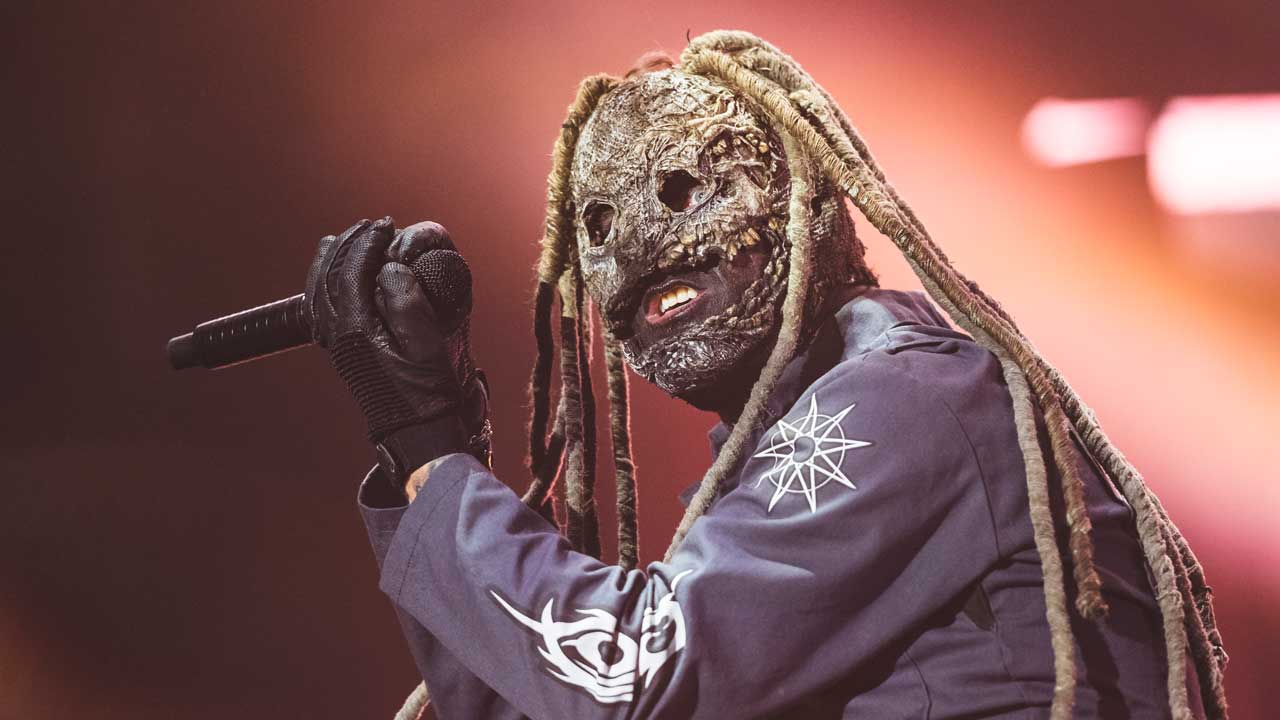“Someone made up something and said, ‘If you believe in this, you’ll be better off when you die’”: Paradise Lost won’t offer any religious enlightenment on new album Ascension
Singer Nick Holmes talks to Metal Hammer about Paradise Lost’s new music, dealing with depression, and why the band aren’t returning to electronica any time soon

Select the newsletters you’d like to receive. Then, add your email to sign up.
You are now subscribed
Your newsletter sign-up was successful
Want to add more newsletters?

Every Friday
Louder
Louder’s weekly newsletter is jam-packed with the team’s personal highlights from the last seven days, including features, breaking news, reviews and tons of juicy exclusives from the world of alternative music.

Every Friday
Classic Rock
The Classic Rock newsletter is an essential read for the discerning rock fan. Every week we bring you the news, reviews and the very best features and interviews from our extensive archive. Written by rock fans for rock fans.

Every Friday
Metal Hammer
For the last four decades Metal Hammer has been the world’s greatest metal magazine. Created by metalheads for metalheads, ‘Hammer takes you behind the scenes, closer to the action, and nearer to the bands that you love the most.

Every Friday
Prog
The Prog newsletter brings you the very best of Prog Magazine and our website, every Friday. We'll deliver you the very latest news from the Prog universe, informative features and archive material from Prog’s impressive vault.
Paradise Lost aren’t gloomy all the time. When the death/doom icons’ frontman Nick Holmes video-calls Metal Hammer from his tour bus in Belgium, his Zoom profile picture is a disheveled Phil Mitchell clinging to a bottle of booze. But, since their 1988 founding, the Yorkshiremen have become synonymous with sonic sadness, and they’re set to continue apace with Ascension in September.
Preceded by recent lead single Silence Like The Grave, Paradise Lost’s 17th album will offer 10 more anthems of defeat, nihilism and negativity. From the title to the artwork and some of the lyrics, it also looks to be a particularly atheistic work from a collective who once said, “I think for anybody in the band to suddenly become a Christian, I would presume they’d gone mentally ill.”
In his first interview since Ascension’s announcement, we speak to Nick about the new songs’ themes, as well as his personal experiences with depression and the band’s history of genre-hopping.

Ascension is the first Paradise Lost album of new material in five years, but you’ve not exactly been slouches during that time…
“We normally do an album every three years, but we had two years of the pandemic, so that brought it up to five. But, during the pandemic, Greg [Mackintosh, guitars] and I wrote the Host album [2023’s IX] as a bit of a time killer while we were in the lockdown. Towards the end of that process, we started thinking about writing the new Paradise Lost album.”
Is Silence Like The Grave an accurate preview for the rest of the album to come?
“It’s one of the more uptempo, heavier songs on the album, but it’s a good cross-section of what you’re going to get on the album. When we re-recorded the Icon album [in 2023], we got a bit of the taste of the vibe we had back then. I think that rubbed off in the songwriting, definitely a bit with this one. The vocals particularly are a bit of a nod to the ’93 Icon sound.”
Sign up below to get the latest from Metal Hammer, plus exclusive special offers, direct to your inbox!
The new album is called Ascension and there are songs throughout it that reference religion, like Serpent On The Cross and Salvation. Given you once said that if anyone in the band went Christian you’d assume they’d gone mentally ill, what’s the relationship with religion in these lyrics?
You live a bad life, then all of a sudden you can believe in God and say a prayer, and you’ll be forgiven for being a twat when you were alive
“I stand by that, by the way. Ha ha! It’s the hypocrisy of things. The whole thing that Ascension’s about is, basically, you live a bad life, then all of a sudden you can believe in God and say a prayer, and you’ll be forgiven for being a twat when you were alive. I kind of like the fact that people need to do that, and they’re so desperate and terrified of dying. Religion is all about dying anyway, or the fear of dying. Someone made something up once and said, ‘If you believe in this, you’ll be better off when you die.’ That’s where it comes from.”
In recent years we’ve seen that religious fundamentalism has a lot of mainstream power, like when it was used as part of the reasoning to overturn Roe v. Wade in America. Has what’s been going on politically inspired the themes of the album?
“If someone’s in a vulnerable position in their life and they’re looking for something to grasp onto, then that’s the seed for extremism. That’s not a new thing; that’s always been the case. Religion is a good crutch for that, that extremist thing. Don’t get me wrong, I don’t have anything against people being religious – it’s the more cult-type things that I find a bit creepy. The fact that people fall for it is scary as well.”
The artwork has obvious religious symbolism as well. What is the piece and why did you want to use it?
I didn’t like taking antidepressants. It made me a bit too carefree. That’s not a good way to be.
“It’s an angel holding a baby [called The Court Of Death], by [British painter George Frederic] Watts. Greg found it. We always loved when old thrash and death metal albums had grand master-type paintings, but we never had one. We never found one that we could get the rights to, or that we liked enough to use. A lot of the old Renaissance paintings, they tended to depict people looking up at the sky: always looking up to God, particularly when someone’s in their arms dying. That ties into the Ascension thing. The fear of death is a strong theme in pretty much everything we’ve done since we started the band.”
You’ve been writing sad and pessimistic lyrics in Paradise Lost for nearly 40 years. Is there a cathartic or therapeutic element to writing songs like that?
“It’s complete escapism. When I was a teenager and I started getting into extreme, darker music, I had fun listening to it. People outside of our world, they don’t normally get that. They think it’s miserable. But I still feel exactly the same way with it. It’s like watching a film: it’s pure escape.”
Your lyrics aren’t necessarily an insight into your mindset, then.
“Not for me, no. I’m very private on certain things. I’ve only felt like I’ve ever had depression once, and that was around the time we did the Host album [in 1999], which was when my father died. That’s the last time I can remember what I would class as genuine depression. It’s the looming cloud sort of thing. I’ve managed to keep it at bay, but you never know when it’s going to come back, and you never know what’s going to trigger it, either.”
You’ve admitted before that you were on antidepressants while making [2001 album] Believe In Nothing. How did you pull yourself out of that period?
“Believe In Nothing was a weird time, because music was changing anyway. Nu metal shook up everything, especially our genre: it changed a hell of a lot. Alongside that, there was a lot of stuff going on at home. I didn’t like taking antidepressants. It made me a bit too carefree. I wanted to get off these things that I didn’t like, that made me feel like I didn’t care about anything. That’s not a good way to be. I shook that period off as fast as I could.”

Host and Believe In Nothing had more pop and electronic sounds. Even though you did the Host project a couple years ago, do you think those styles could ever come back for Paradise Lost?
“I think we’re comfortable where we are, really. It’s sort of where we started off in the first five years of the band. We’re very happy in this pond, you know? We don’t need to get into a bigger pond.”
This is your 17th album, and you need to be constantly inspired and motivated to make that many. Is there anything you’ve not done with your music yet that you’re eager to try?
“It’s a weird one, that. If we try to wander away from what we’re known for, because I’m working with Greg, it will sound like us anyway. The way he plays guitar particularly is the sound of Paradise Lost. But, at the same time, I think you can grow and try out different things. You can experiment more now. I think people are more open-minded when it comes to music.”
Will there ever be a happy Paradise Lost song?
“No. It would be bittersweet. The song The Last Time is melancholic and that’s probably as happy as it’s going to get. I wouldn’t even bother attempting. Ha ha! I can imagine Greg’s face. If we did something in a happier tuning, he’d be frowning in your face!”
Ascension is out on September 19 via Nuclear Blast. Paradise Lost are currently playing festivals and supporting King Diamond. They’ll headline a European tour in October and November.

Louder’s resident Gojira obsessive was still at uni when he joined the team in 2017. Since then, Matt’s become a regular in Metal Hammer and Prog, at his happiest when interviewing the most forward-thinking artists heavy music can muster. He’s got bylines in The Guardian, The Telegraph, The Independent, NME and many others, too. When he’s not writing, you’ll probably find him skydiving, scuba diving or coasteering.

